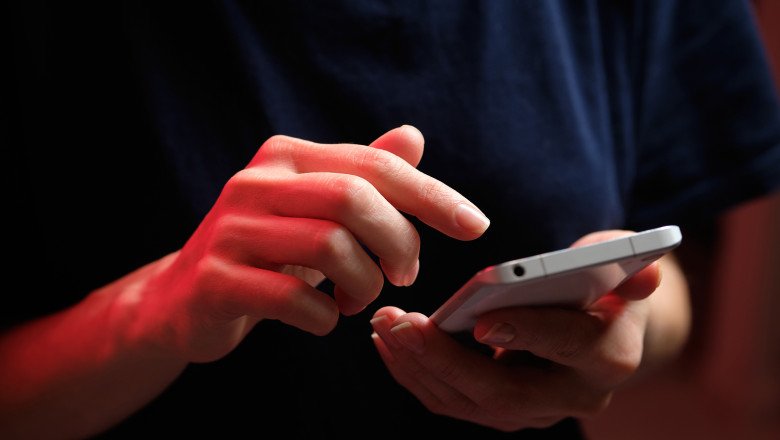
views
Prospective students applying for U.S. student visas must now unlock their social media accounts for government review, the State Department said Wednesday.
The notice instructs applicants for F, M, and J visas to change their social media profile privacy settings to “public.” A separate cable, obtained by multiple news outlets, directed embassies and consulates to vet applicants for “hostile attitudes towards our citizens, culture, government, institutions, or founding principles,” while visa appointments, which had been suspended in May, are allowed to resume. The guidance comes amid the Trump Administration’s crackdown on universities, including by targeting international students.
Advertisement
Advertisement
“A U.S. visa is a privilege, not a right,” the announcement said, echoing a refrain that’s become common among the Trump Administration. “Every visa adjudication is a national security decision. The United States must be vigilant during the visa issuance process to ensure that those applying for admission into the United States do not intend to harm Americans and our national interests, and that all applicants credibly establish their eligibility for the visa sought, including that they intend to engage in activities consistent with the terms for their admission.”
Here’s what to know about the new guidance.
Weeks after embassies were told to stop all new student visa appointments, they are now allowed to resume. Fanta Aw, CEO of NAFSA: Association of International Educators, said in a statement at the time that the pause—and more stringent checks—would cause “unnecessary delays, fuels uncertainty, and damages our reputation as a welcoming destination for global talent.”
Advertisement
The cable noted that increased vetting may be a strain on consulates, and said consular officers “should consider overall scheduling volume and the resource demands of appropriate vetting” such as by scheduling fewer appointments, the Washington Post reported.
The State Department told embassies to prioritize students going to colleges where international students make up less than 15% of the student body, per the cable, which was first reported by the Free Press. An Associated Press analysis from 2023 found that international students comprise more than 15% of the total student body at around 200 universities across the country, including all eight Ivy League colleges, and more than 15% of the undergraduate student body at around 100 universities.
Trump previously said Harvard should cap its foreign enrollment at 15%. The Trump Administration has targeted international students at the elite university in a punitive move over the school’s refusal to sufficiently capitulate to a list of demands. International students currently make up more than a quarter of Harvard’s student body.
Advertisement
Applicants for student and exchange visas will now have their “entire online presence” vetted, per the cable reportedly said. If students refuse to change their accounts to “public” and “limited access to, or visibility of, online presence could be construed as an effort to evade or hide certain activity.”
Specifically, consulates are instructed to “identify applicants who bear hostile attitudes towards our citizens, culture, government, institutions, or founding principles; who advocate for, aid, or support designated terrorists and other threats to U.S. national security; or who perpetrate unlawful antisemitic harassment or violence.”
The guidance did not specify what exactly would constitute “hostile attitudes.”
Consulates are required to implement the new procedures within five business days, but the new criteria applies to both new applicants as well as to cases currently in progress—students who are awaiting their interviews, have been interviewed but who have not yet been approved, and those whose interviews have been waived.
Advertisement
“During the vetting, you simply are looking for any potentially derogatory information about the applicant,” the cable said, but gave as an example: “You might discover on social media that an applicant endorsed Hamas or its activities.”
“For applicants who demonstrate a history of political activism, especially when it is associated with violence or with the views and activities described above, you must consider the likelihood they would continue such activity in the United States and, if so, whether such activity is consistent with the nonimmigrant visa classification they seek,” the cable said, as reported by CNN. “As Secretary Rubio has said, we do not seek to import activists who will disrupt and undermine scholarly activity at U.S. universities.”
Moreover, students’ “online presence” will go beyond their social media activity, Politico reported, and includes information from online databases like LexisNexis.
Advertisement
Whether or not an applicant’s activity amounts to a threat is at the discretion of consular officers, according to the cable, adding that “you must consider whether they undermine the applicant’s credibility or suggest that the applicant will not respect the terms of his admission to the United States.” Officers are instructed to take “detailed case notes” including screenshots for additional review.
The cable notes that student visa applicants warrant particularly strict vetting because “the FBI has long warned that foreign powers seek access to American higher education institutions to, among other things, steal technical information, exploit U.S. research and development, and spread false information for political or other reasons.”
Critics, like Aw, have said increased vetting should be “applied uniformly—not selectively to students who have long contributed to American classrooms, communities, and cutting-edge research.”
Advertisement
Higher education experts previously told TIME that more rigorous scrutiny of students’ social media, in addition to punitive policies toward students that participated in pro-Palestinian activism, could have a chilling effect on academic freedom—something U.S. universities had previously developed a strong global reputation for.
Lili Yang, an associate professor specializing in higher education at the University of Hong Kong, said that Trump’s crackdown will lead to a tremendously negative impact on free speech on campus and the U.S.’s reputation [as] a place for free expression.”
https://time.com/7295949/international-student-visas-colleges-universities-social-media-state-department-trump/























Comments
0 comment